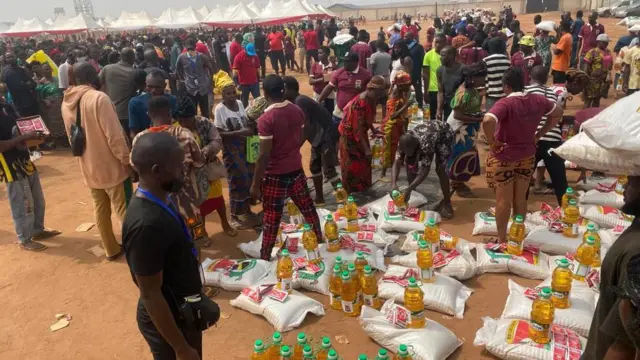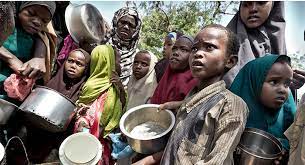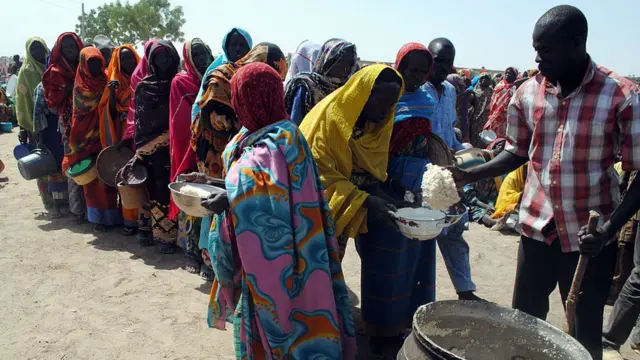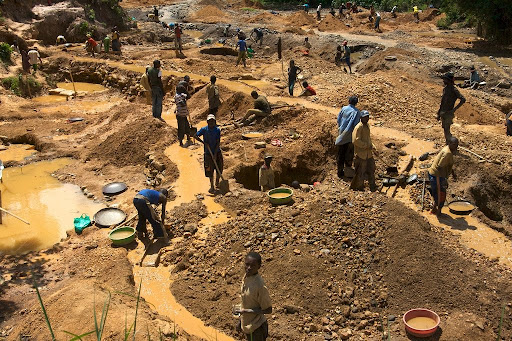The festive season, particularly Christmas, is synonymous with generosity, giving, and the spirit of goodwill. Across Nigeria and beyond, individuals, organisations, and communities organise charity drives to spread joy to those in need. Food, clothing, and other essentials are distributed to the less privileged, bringing relief to many struggling families. However, these acts of kindness can sometimes turn tragic, as seen in recent cases where overcrowding at charity events led to stampedes.
In Ibadan, Okija, and Maitama, stampedes at events distributing free items claimed over 70 lives in one week. These tragedies have sparked a nationwide conversation about the risks of large gatherings during charity drives and how organisers can ensure the safety of attendees.
Join our WhatsApp ChannelExperts across various fields have shared insights into how hunger, inadequate planning, and social dynamics contribute to such disasters, and what can be done to prevent them.
The Hunger Factor: Desperation at the Heart of Stampedes
Dr. Tayo Olaniyan, a social psychologist, points to hunger and poverty as the primary drivers of chaotic scenes at charity events. “Christmas is a season of abundance for some, but for others, it is a harsh reminder of their struggles,” Dr. Olaniyan explains. “The promise of free food or items becomes a beacon of hope for many, especially in a country like Nigeria, where over 60% of the population lives in poverty.”
He describes how the psychological impact of hunger can lead to desperate behaviour. “When people are hungry, their decision-making is impaired. The instinct for survival overrides caution, and they become willing to take risks, such as rushing into overcrowded spaces,” he says.
READ ALSO: Stampede: Lagos Govt Warns Event Organisers, Show Promoters To Prioritise Crowd Management
Dr. Olaniyan also notes that the festive season amplifies the pressure on struggling families to provide for their children. “Parents don’t want their children to feel left out during Christmas. This emotional burden drives many to charity events, even when they know the risks.”
Poor Planning: A Recipe for Disaster
While hunger explains the desperation of attendees, safety expert Ibrahim Bello highlights the role of poor planning in turning these gatherings into dangerous situations. Bello, who has worked on safety protocols for major events, believes that many charity organisers underestimate the scale of their events.
“Organisers often fail to anticipate the crowd size. They announce free distributions on social media or through local networks, but they don’t put measures in place to manage the response,” Bello says.
He outlines the common pitfalls of poorly planned charity drives:
- Lack of crowd control: No barriers or designated entry and exit points.
- Insufficient personnel: Few or no trained security or event staff on-site.
- Unpreparedness for emergencies: No first aid kits or clear plans for evacuating people in case of panic.
“Many of these events are driven by good intentions but lack the expertise needed to handle large crowds. Safety should always be a priority,” he emphasises.
Solutions for Safer Charity Drives
Dr. Olaniyan and Bello agree that addressing these issues requires both immediate and systemic solutions. Bello recommends a checklist for charity organisers:
- Collaborate with safety agencies: Engage professionals to assess risks and provide on-ground support.
- Limit crowd sizes: Use ticketing or pre-registration to manage attendance.
- Ensure adequate facilities: Provide water, shade, and seating to prevent crowd fatigue.
- Train volunteers: Equip staff with crowd management skills and emergency response training.
Bello adds that organisers should also work closely with local authorities.
“In Lagos, for example, the Safety Commission has guidelines for large events. Organisers need to register and adhere to these rules,” he says.
Community Engagement: A Grassroots Approach
Amaka Chukwuma, a humanitarian worker with a decade of experience, suggests a community-based approach to reduce risks. She believes that involving local leaders can help distribute aid more safely.
“When you work with community leaders, they can help identify the most vulnerable families and organise smaller, decentralised distributions,” Chukwuma explains.
She shares a success story from a food drive her organisation conducted last year. “Instead of one big event, we split our team into smaller units and worked through local churches and mosques. This way, we avoided large crowds, and everyone received what they needed in an orderly manner.”
Chukwuma also emphasises the importance of discreetly providing aid to preserve the dignity of recipients.
“Announcing free distributions publicly often attracts crowds that are too large to manage. A more targeted approach ensures safety and fairness,” she says.
Long-Term Strategies to Address Hunger
While immediate measures can reduce the risk of stampedes, the experts agree that the root causes of these incidents—hunger and poverty—must be addressed. Dr. Olaniyan argues that charity alone is not enough to solve these problems.
“Charity drives are temporary fixes. To truly reduce the desperation that leads to stampedes, we need long-term policies to tackle poverty,” he says.
Chukwuma suggests that organisations focus on empowerment programs alongside aid distribution.
“Teach skills, provide microloans, or offer employment opportunities. These initiatives can help people become self-reliant, reducing their dependence on charity,” she advises.
Bello believes that the government has a role to play in ensuring food security during the festive season.
“Seasonal programs that subsidise food prices or distribute essentials through government channels can ease the burden on private charities and reduce overcrowding,” he says.
A Call to Action to avoid stampede
The tragic stampedes that have marred recent charity events should serve as a wake-up call for all stakeholders. As Christmas approaches, the spirit of generosity must be accompanied by a commitment to safety and responsibility.
Organisers, government agencies, and communities must work together to ensure that charity drives bring joy and relief, not tragedy. Hunger may bring crowds, but careful planning and thoughtful execution can prevent these gatherings from turning deadly.
Emmanuel Ochayi is a journalist. He is a graduate of the University of Lagos, School of first choice and the nations pride. Emmanuel is keen on exploring writing angles in different areas, including Business, climate change, politics, Education, and others.

















